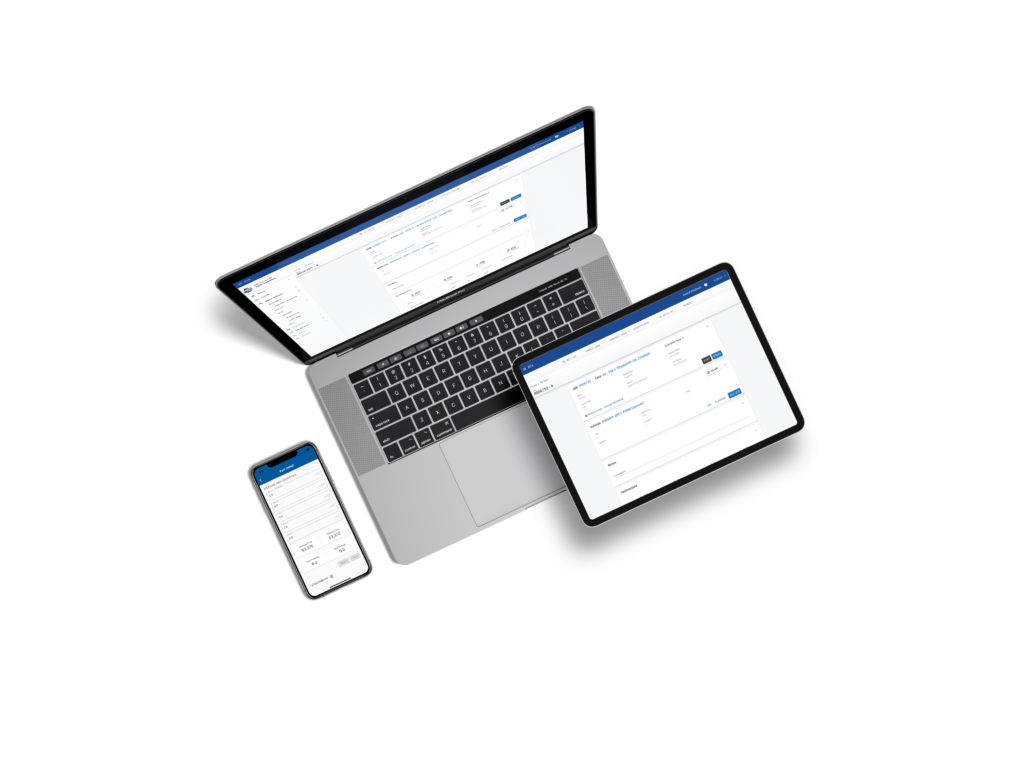Role of Technology in Modern Fleets

By Mary Gerard, Content Marketing Manager
“It’s not that we use technology, we live technology.” – Godfrey Reggio
When it comes to adding new technology to your fleet, you are likely either an advocate or an opponent. There really isn’t a lot of gray area when it comes to how you feel about technology.
However, whether you resist using modern technology to operate your fleet operation, or you jump at the chance to use innovative solutions to find new ways to perform tasks, it’s essential to understand technology has a role in modern fleets.
From the types of vehicles you add to your fleet, to how you’re tracking your assets and your data, technology is making more and more of an appearance every day.
Some of the most common types of technology you might use around your shop can include:
- Fleet management software: Fleet management software, or an FMIS, allows fleet managers to track and monitor their vehicles, parts, work orders, labor, and other data in real time. This software provides information about the location of the vehicles, fuel consumption, and maintenance schedules. It can also help track parts inventory, set up purchase orders, track warranty claims, and provide more pivotal information you need to efficiently operate your shop.
- Telematics: Telematics devices can serve multiple purposes for your fleet. They can monitor your drivers’ behaviors, vehicle performance, fuel efficiency, and other areas. This means you can track if drivers are idling their vehicles, are driving aggressively, are running personal errands, and even if they are driving distractedly. It can also send alerts to your shop if there is a maintenance issue with the vehicle. Getting this advance warning from the telematics solution lets your technicians prepare for the repairs so they are ready to go when the vehicle arrives in the shop – reducing its downtime.
- GPS tracking: GPS tracking technology lets you track the location of your vehicles in real time. This information can be vital as you look to cut costs. Using GPS tracking, you can see which route a vehicle is on and determine if there is a better option that will reduce time and fuel usage.
- Autonomous vehicles: As autonomous vehicles make more advances and become more popular, you are going to likely have some AVs in your fleet that have various levels of technology. Whether it’s using some parking features or safety enhancements, or eventually a fully self-driving vehicle, these assets can help you improve your navigation, create more efficient routes, and keep your drivers and vehicles safer.
- Electronic vehicles: EVs are coming. How many you add to your fleet, or how big of an impact it will have on your operation will vary. But it’s essential to get prepared now by determining how to charge these EVs, how to perform repairs and maintenance on them, how to train your drivers and staff and determine what other adjustments will need to be made.
- Electronic logging devices: Commercial vehicles need to have electronic logging devices installed in them to record hours of service (HOS) data. This technology helps fleet managers ensure drivers are complying with government regulations to reduce the risk of accidents caused by driver fatigue. A commercial vehicle can be pulled over and asked for the ELD logs, so it’s crucial to make sure your fleet has these installed and drivers are following the requirements to avoid fines and stay safe.
Technology is essential to the success of modern fleets. Whether you are using several solutions or a few, these can help you improve efficiency, reduce costs, and increase safety across your fleet operation.
To learn how RTA’s robust, industry-leading FMIS can help your fleet operation run more efficiently, schedule a tour of the system today.
